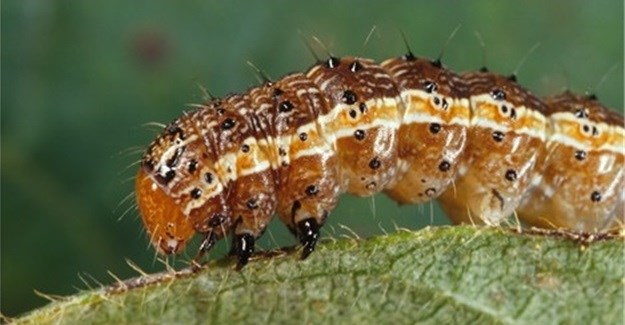
Top stories






More news

Marketing & Media
Warner Bros. was “nice to have” but not at any price, says Netflix

Logistics & Transport
Maersk reroutes sailings around Africa amid Red Sea constraints

















Uganda confirmed last month that Fall armyworm had entered its borders after devastating crops in several southern African nations in what the UN Food and Agriculture Organisation said was a "huge threat to food security".
Telesphore Ndabamenye, head of crop production at the Rwanda Agriculture Board, told AFP the harmless-looking brown caterpillar had afflicted most of Rwanda's 30 districts but said the outbreak was "not bad".
"It is under control, there is big effort devoted to control it," Ndabamenye said.
Meanwhile, Kenya's Daily Nation newspaper reported Monday the disease had struck maize crops in 11 of the country's 47 counties, in a blow to farmers whose profits have already been hit by a devastating drought.
Though native to the Americas, the brown caterpillar first appeared in Nigeria and Togo last year, with some experts blaming commercial air travel for its spread.
Agriculture is the backbone of many east African countries including Rwanda, where about 80% of the population depends on farming.
Armyworm eats food sources like maize, wheat, millet and rice along with crops like cotton, potato, soybeans and tobacco.
It has already taken a toll on Uganda where the government said this week the pest had spread to nearly half of the country's districts and that losses from crop destruction could top $193m.
While pesticides are effective, Fall armyworm in the Americas has developed resistance to the chemicals.
In a statement, Rwanda Defence Force called the bug "a real threat to national food security," and announced it had airlifted about 4,500l of pesticides used to counter it around the country.
Source: AFP

For more than two decades, I-Net Bridge has been one of South Africa’s preferred electronic providers of innovative solutions, data of the highest calibre, reliable platforms and excellent supporting systems. Our products include workstations, web applications and data feeds packaged with in-depth news and powerful analytical tools empowering clients to make meaningful decisions.
We pride ourselves on our wide variety of in-house skills, encompassing multiple platforms and applications. These skills enable us to not only function as a first class facility, but also design, implement and support all our client needs at a level that confirms I-Net Bridge a leader in its field.
Go to: http://www.inet.co.za